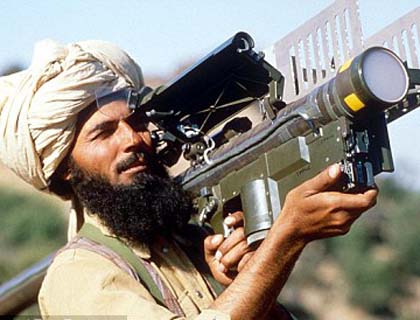The peace process with the Taliban militants is getting complicated in a strange way. Afghan government more than ever is irritated about its marginal role in the process which is largely led by US, Germany and Qatar this time. Indeed, opening a diplomatic door with Taliban was not the idea of foreign allies from the start. Instead, during past years, they stood strongly behind military strategies to win anti-insurgency struggle in the country.
Ending Taliban regime by the assistance of North-alliance in no time and the shock which made Taliban leaders to reassess their strategy from a rigid assailant to a flexible guerilla type of fight and escape one, helped foreign allies to push for their military strategy.
The collapse of the regime and warm-welcoming of large population, used to suffer under the regime, provided a circumstance which led into a military and political miscalculation by international community. They thought that Taliban-led militants would not resurge as they had the support of large population along with armed north alliance.
Moreover, Taliban regime clearly backed the incident of 9/11 and did not accept to hand over the al-Qaeda leader. The stance bought the regime mounting global hatred which largely helped the former US President Bush to get the approval of United Nations rapidly and to intervene and eliminate the regime.
In addition, the global hatred did not leave Taliban backers out too. Countries which had close links came under severe pressure from the international community to cut ties and support the global initiatives. Involved countries maintained that the isolation of regime might dishearten circles and countries to stop backing the remaining of the regime or even might persecute them in their own countries on the ground of fear not to be exposed to global hatred.
But the optimism proved to be illusionary. Taliban leaders found safe-hideouts other than Afghanistan. They have been living their without any persecution and regularly informed about possible threat to their lives. They could/can move freely here and there without fear of persecution from legal establishment of countries where they are kept secretly.
Thus, though Taliban could not stand against the military might of US-led international community, they could, in contrast to political and military calculations, rapidly change strategy and resurge back to the country. They used those safe-hideouts and redesigned the strategy to fight against Kabul government and its foreign allies. After the successful resurgence, international community came into an understanding they underestimated militants and overestimated their influence over countries which had close ties with Emarat Islami.
But the recognition was too late. The water has already spilled to an infertile land and the tide changed. Many countries which had large support of civilians to fight against insurgency increasingly faced expected civilians pressure to pull back as soon as possible. There remained no strong logic for them to justify the struggle taking lives of their troops and wasting billions of taxed dollars while the unemployment rate was at a horrifying level.
So, time proved to be in the favor of militants.
On one hand, the war increasingly lost its popularity in the West. Economic slow down affected the military budget. People started turning back and pressuring their governments to pull their military back.
On the other hand, in domestic sphere, Afghans increasingly were exposed to patriotic and Islamist thoughts. Many got sensitive about the presence of foreign forces particularly after measures found entirely humiliating by conservative society like "house search". Militants' propaganda also instigated Islamist fronts. Of course there were several other principle factors fuelling further the mayhem like corruption, inefficient administration, presence of influential people who are charged of human rights violation.
Thus, the above factors made Afghan government lose confidence over its foreign allies military might in bringing peace and stability. Meanwhile, foreign allies involved in exhaustive war increasingly lost will to continue anti-insurgency struggle.
The clear example was the remarks of President Obama in a speech for his military surge that restricted the "anti-insurgency struggle" into a more particular and specific "anti-al-Qaeda struggle".
Thus, in order to break the tide once again was possible only trying a mixed military and diplomatic initiative. In the diplomatic sphere, President Karzia has been trying to persuade as well as win the trust of foreign allies to hand over the peace initiative entirely to his government since long time ago. He succeeded and it was done. President and his government were entirely authorized to negotiate and bargain with militants.
He called upon a grand traditional assembly, Loya Jirga, and established a High Peace Commission to talk with militant leaders. But the Taliban showed not flexibility and warned to target High Peace Commission members and do not negotiate with it.
When the Chief of High Peace Council and former President, Mr. Burhanuddin Rabbani was assassinated in his very house, President said that he would talk directly with Pakistan instead of Taliban leaders. Mr. Rabbani's murder brought the peace process in a deadlock and proved the endeavors were not successful.
But again the Loya Jirga was called on the context of whether to accept strategic cooperation contract or not? But the destiny of peace process was also at the center of negotiation of participants. Once again President succeeded to get approval of participants to restart negotiation with Taliban-led militants. But seemingly there is nothing to entice Taliban leaders to negotiate with government this time.
So, the failure of Afghan-led peace process and lack of any diplomatic measure to attract Taliban leaders made US and its allies to step in unilaterally. There are reports that Taliban leaders have agreed to talk with US.
The reports have angered Kabul officials and they are talking about the grim prospective if Afghan government does not lead the process. But there are no signs that US and its allies would give President Karzai what he wants——leading the peace process.

